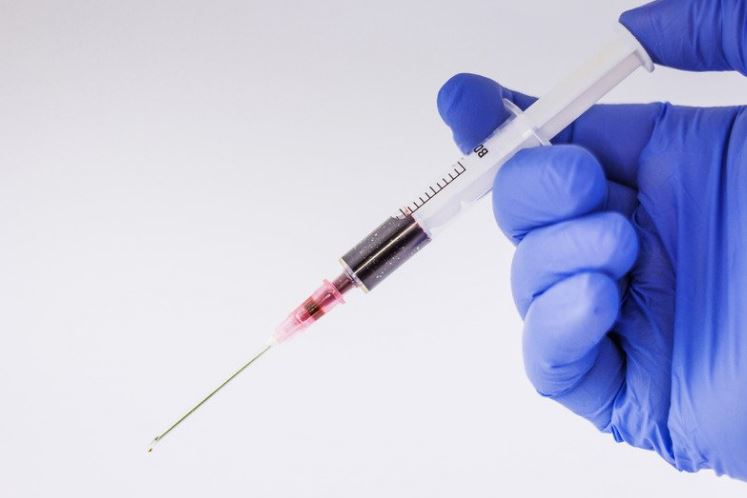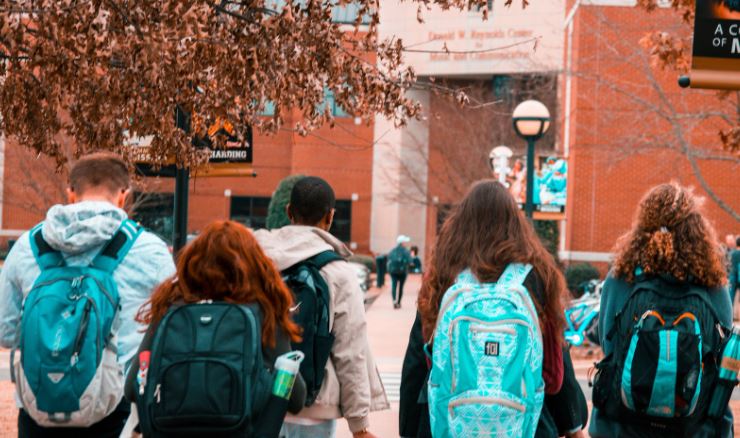
FOR IMMEDIATE RELEASE
January 19, 2021
Media Contact: Press@Michigan.gov
Governor Whitmer Announces the Michigan COVID Recovery Plan to Jumpstart the State’s Economy and End the COVID-19 Pandemic
Plan includes a direct focus on vaccine distribution, small businesses, and schools
LANSING, Mich. — Today, Governor Gretchen Whitmer announced the Michigan COVID Recovery Plan to grow Michigan’s economy and help end the COVID-19 pandemic. The governor’s plan includes a strong focus on vaccine distribution, economic recovery, schools, and more.
“To help grow and strengthen our economy, we must provide crucial support for our families, small businesses, and frontline workers,” said Governor Whitmer. “The MI COVID Recovery Plan will help small businesses get through the winter, help us put more shots in arms and ramp up vaccine distribution, and get our kids back on track in school. It’s the right thing to do to protect public health and jumpstart our economy, and I’m ready to work with the legislature to get it done.”
“The governor’s MI COVID Recovery Plan includes crucial support for our small businesses, our educators, students, and support staff, and our overall public health,” said State Budget Director Dave Massaron. “This is a plan to help our economy recover from the COVID-19 pandemic and help Michigan compete. To make these investments even more valuable, the immediate action by the legislature to renew Good Jobs for Michigan is vitally important to drive more opportunity for our residents.”
“While still down more than $1 billion compared to projections before the pandemic, the state’s fiscal year 2021 revenues were raised upwards primarily due to impacts from the federal stimulus along with Governor Whitmer’s strong leadership,” said State Treasurer Rachael Eubanks. “Our economic recovery is highly dependent on getting the public health situation under control, and her actions to address the COVID-19 pandemic have improved our fiscal outlook. The MI COVID Recovery Plan will help us jumpstart our economy. Our economic recovery this year will continue to depend on the course of the pandemic and additional economic relief coming from Washington D.C. This plan will direct dollars where they are needed most and will help us achieve the economic recovery we are all eagerly waiting for.”
See below for more details on the governor’s plan:
— PUBLIC HEALTH —
VACCINE DISTRIBUTION: Michigan is ready to ramp up vaccination distribution, which will help us get back to normal as quickly as possible. Last month, Congress appropriated $90 million in additional resources for vaccine distribution in Michigan through the Coronavirus Response and Relief Supplemental Appropriations Act. The governor’s plan will use this federal funding to ramp up vaccine distribution in Michigan and bring us closer to our goal of 50,000 shots in arms per day. This funding will help provide financial support to local health departments for vaccine administration costs, including staff augmentation, as well as provide equipment and supplies. Michigan will also receive $575 million to expand COVID testing, tracing, and lab capacity in Michigan.
— JOBS AND ECONOMY —
SUPPORT FOR SMALL BUSINESS: As part of the governor’s MI COVID Recovery Plan, the governor’s plan provides $225 million for three new programs from the MEDC:
- The Michigan Mainstreet Initiative will help stabilize our small business community by securing grants for restaurants and other place-based businesses to keep our Main Streets vibrant and our communities resilient.
- The Michigan Microenterprise Support Initiative will help us put small businesses with less than nine employees on the path to recovery by creating greater access to much needed support.
- And the Business Accelerator and Resiliency Initiative will provide grants to high-tech startups that can help our communities thrive.
“Small businesses are critical to the recovery of our communities,” said Small Business Association of Michigan President Brian Calley. “As we approach upcoming reopenings, the Main Street Initiative will target much needed support for some of the hardest hit local businesses.”
“This plan addresses some of the major issues that must be overcome to win Michigan’s COVID-19 recovery: mitigating learning loss, rebuilding small businesses, attracting new jobs and upskilling our workforce. We’re encouraged by the proposed one-time investments for each of these priorities, and look forward to working with the Governor and our state’s leaders to recover and get back on the path to becoming a Top Ten state,” said Jeff Donofrio, President & CEO of Business Leaders for Michigan.
GOOD JOBS FOR MICHIGAN: Governor Whitmer called on the Michigan Legislature to pass Good Jobs for Michigan to help Michigan retain and grow our businesses and create jobs. The Good Jobs for Michigan Program provides Michigan businesses with a crucial tool to create jobs and thrive in our state. Pfizer was the first business to utilize Good Jobs for Michigan, and did so to build their sterile drug manufacturing plant and create 450 good-paying jobs in Portage – the same Portage plant that the first doses of the safe and effective COVID vaccine shipped from at the end of last year. It’s time for the legislature to pass this bill and send it to the governor’s desk.
UNEMPLOYMENT BENEFITS: The governor’s MI COVID Recovery Plan includes a call on the Michigan Legislature to permanently extend unemployment benefits from 20 weeks to 26 weeks. This would bring Michigan in line with 40 other states and provide hard-hit Michigan workers with the financial security and peace of mind they need and deserve.
FOOD ASSISTANCE: As of fiscal year 2019, one in eight Michigan residents received food assistance. Governor Whitmer’s Michigan COVID Recovery Plan will provide more support for families through food assistance so more Michiganders can afford to put food on the table for themselves and their families.
“On behalf of Michigan families, seniors and children faced with the toxic stress of food insecurity, the Food Bank Council of Michigan welcomes the relief in the current federal legislation,” said Food Bank Council of Michigan Executive Director Dr. Phillip Knight. “It is right, moral and beyond necessary. The pandemic has skyrocketed demand for food by 50%, a staggering statistic the places a huge demand on our regional food banks.”
RENTAL ASSISTANCE: The federal Emergency Rental Assistance Program, established in the Consolidated Appropriations Act, 2201, will provide the State of Michigan with funding to assist households that are unable to pay rent and utilities due to the COVID-19 pandemic. The governor’s plan will allocate this federal funding to help more Michiganders stay in their homes.
“Keeping people safe and healthy in their homes is one of the most important things we can do right now to slow the spread of the coronavirus while we vaccinate. This rental assistance funding will help Michiganders who are struggling to stay timely with payments to their landlords – the very same business owners who also often depend on this source of income to pay their own bills,” said Michigan Coalition Against Homelessness Executive Director Eric Hufnagel. “We applaud Governor Whitmer and our Michigan leaders for moving quickly to prevent homelessness during these cold winter months.”
OFFICE OF RURAL DEVELOPMENT: The governor will create an Office of Rural Development tasked with coordinating work across state government to address issues facing rural communities—including broadband, talent, infrastructure, and more. The MI COVID Relief Plan will also include grants to provide infrastructure and capacity support in rural communities and support for land-based industries.
PROPERTY TAX ASSISTANCE: The governor’s plan includes funding to waive penalties and interest for certain property owners who did not pay their summer 2020 property taxes on time as a result of economic hardship created by the COVID-19 pandemic .
TALENT: The governor’s plan will provide targeted employment and training services through the Department of Labor and Economic Opportunity to connect unemployed and underemployed Michigan residents with training and resources necessary for gainful employment. The program will prioritize residents from underserved or economically distressed communities to provide them with the skills needed for entry into registered apprenticeships in the energy sector to help drive Michigan’s energy transition.
RECONNECT/FUTURES FOR FRONTLINERS WRAPAROUD SUPPORTS: The governor’s plan includes a pilot providing wrap-around supports for up to 400 single parents who participate in the Michigan Reconnect and Futures for Frontliners programs. Participants will receive on-campus childcare, intensive personalized advisement, educational supports including tutoring, career counseling and assistance in transitioning to a 4-year school.
— EDUCATION —
SCHOOLS: As part of the recent actions from the federal government, Michigan was allocated nearly $1.7 billion through the Elementary and Secondary School Emergency Relief Fund (ESSER Fund). The governor’s MI COVID Recovery Plan will allocate this federal funding, along with an additional $300M in state dollars, to help schools meet the Governor’s goal of providing every student with an in-person learning opportunity by March 1, and to help address the learning loss that has occurred due to the pandemic. These one-time, flexible dollars will be distributed through a formula that recognizes the additional costs associated with supporting students in poverty and students with special education needs.
“In order to safely educate Michigan students, schools and educators must have the funding necessary to put virus mitigation measures in place and adhere to them. COVID-19 has impacted every district in the state and every district needs resources to continue educating Michigan students. That’s why the additional per-pupil funding proposed by the governor is so critical, in addition to providing extra support for the individual needs of Michigan at-risk and special education students,” said Michigan Education Association President Paula Herbart.
“We have to embrace that some students need more funding in order to equitably meet their education needs, and this plan is an important step in doing so,” said AFT Michigan President David Hecker. “This includes, but is not limited to, the federal government’s investment in Title 1 funding that is putting significant resources into helping at-risk students whose learning is being disproportionately harmed amidst this pandemic.” |







